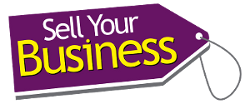
So you’ve built your business and now you’re ready to sell your business and you think you are ready. Are you really ready? Have you considered everything yet? Here are four crucial areas that it’s worth considering very closely if you want to maximise your business exit.
Make yourself redundant.
If you’re still at the centre of the business and finding that everything and everyone revolves around you – that’s not good. The business needs to function without you being at its centre so start stepping away from the day-to-day decision making and trust your employees who you have hired to do the job do it! If you find that you are micro-managing because of fear, loosen the reins and let your employees take the lead. If they don’t perform, there are always better people out there. It’s a question of finding them and making sure that you end up with a performing team with you out at the front, leading. You job will be to sell your business at the best deal you can.
Numbers. Numbers.
The price you’ll get for your business maybe a multiple based on income eg. three times total revenue so make sure that when you present your numbers that they are accurate and your forecasting (generally three years out) is realistic, especially if you stay on in the business because you’ll be asked to smash through those forecasted numbers!! Make sure that your team know what they are aiming for and get their buy-in to achieving those numbers. Your aim is to get a huge slice of the bigger pie so reward them for performance.
Cash is king.
Grow your top line – your revenue. Focusing on revenue will easily prove that the business is growing and will continue to as new sales comes in. Of course, don’t forget to review your cost lines and see if you can squeeze more out for less without compromising or introducing problems elsewhere in the business.
Think like a potential buyer.
Put yourselves in a potential buyers’ shoes and try and look at your business through their eyes. Do you know what unique selling points the buyer’s love? What are the business’ strengths and where are the weaknesses? Tighten up on those, eliminate them where you can. Make sure that you don’t give the potential buyer an excuse to delay or walk away because they found something that you should have first. Instead, you should be making sure that they can’t wait to give you an offer and close the deal as soon as possible.
Joanna Miller helps business owners navigate their way through the start to finish process of selling a business. Her specialty is helping owners understand how to prepare and make the most of their business sale process to maximise their company’s value. To understand how you can sell your business quickly for the highest sales price, purchase her book, “How To Sell A Business: The #1 guide to maximising your company value and achieving a quick business sale”

Joanna,
Generally very good advice. Showing the buyer a growth driven business that works without the owner is the key to achieving good offers. A holiday is always a vital step in building a business that works without the owner.
However I would add a note of caution about growing revenue at the expense of margins. Some headline offers do come in based on revenue, but by the time the deal is done (after review by accountants, funders etc) they are based upon net or gross profit.
If we are in the buyers shoes they are looking for a return on investment and the return is always profit, so revenue growth is only helpful to value when matched by profit growth.
Regards,
Paul.